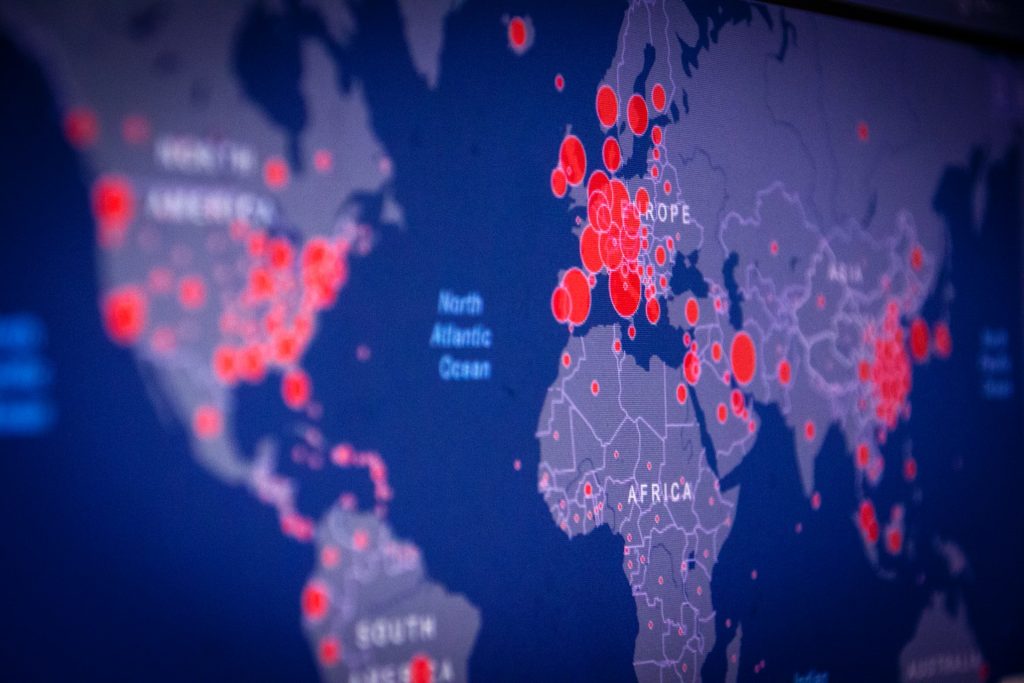B1617 is Becoming the Globally Dominant COVID Strain

The B1617 variant, is becoming increasingly dominant around the world and could worsen the pandemic – especially in countries where low vaccination rates are low. This warning comes from experts in Singapore, who added that there will be more virus mutations to come.
Professor Teo Yik Ying, dean of the National University of Singapore’s (NUS) Saw Swee Hock School of Public Health, said to The Straits Times: “What is frightening is the speed at which this variant is able to spread and circulate widely within the community, often surpassing the capability of contact-tracing units to track and isolate exposed contacts to break the transmission chains.
“It has the potential to unleash a bigger pandemic storm than the world has previously seen.”
Delta has mutated to be more transmissible, and may slightly weaken the protection conferred by vaccines as well as natural infection, experts said. The variant, which was first detected in India in October 2020, is now found around the world.
WHO chief scientist Soumya Swaminathan said that B1617 is 1.5 times to two times more transmissible than the strain that first appeared in Wuhan 18 months ago.
It is now present in more than 50 countries and is surpassing other strains causing infections in India, such as B117 (now ‘Alpha’, commonly known as the UK variant).
“On clinical severity, it’s a little less clear because there have not been controlled studies which look at patients that you control for multiple factors, and then look at the impact of the strain on the clinical profile,” Dr Soumya said at a recent webinar.
Dr Soumya added that anecdotal evidence seems to indicate that more young people in India had been infected and developed serious illness.
In India, more than 27 million people have been infected with COVID, with over 325 000 deaths.
There are three versions of B1617 – B16171 (Kappa), B16172 (Delta) and B16173. The second version is the most relevant as it has appeared to overtake B1671/Kappa as reported globally. The third version, B16173, is rare and has not yet been given a Greek letter designation by the WHO.
On May 8, the National Institute for Communicable Diseases announced that it had detected five cases of the Delta variant in South Africa; three in Gauteng and two in KwaZulu–Natal. Presently, it is unclear if B1617 causes more severe illness or a higher mortality rate.
The best weapon remains widespread vaccination, Prof Teo said. Vaccinated individuals have less chance of being infected, and are much less likely to develop severe symptoms even if infected, Prof Teo added.
Preliminary US research showed that the Pfizer and Moderna vaccines should still be effective against B1617.
A study by Public Health England also showed that the vaccines by Pfizer-BioNTech and AstraZeneca work against Delta, which has become the dominant strain in the UK.
The study found that the Pfizer-BioNTech shot was 88% effective against the Delta variant two weeks after the second dose, with a 60% effectiveness for the AstraZeneca vaccine.
The pressure is to keep up with the rapidly mutating virus and immunise populations to control it. Unfortunately, most countries’s vaccination programmes are far behind.
On Friday, WHO European director Hans Kluge warned that the pandemic will not be over until at least 70% of people are vaccinated. He deplored the roll-out in Europe, saying that while it was better it was still “too slow”.
The European Centre for Disease Prevention and Control said about 43% of adults in the European Union and European Economic Area have received at least one dose of a COVID vaccine as of Saturday, 29 May.
“Time is against us,” Dr Kluge warned, stressing the need to accelerate the immunisation campaign.
South Africa’s long-delayed vaccination programme is in full swing, but so far only about 1% of the population have received a jab, which is currently being administered to healthcare workers and those over 60.
Globally, the outlook does not seem good. The New York Times reported that more than 1.81 billion vaccine doses had been administered worldwide as at Friday (May 28), but a stark divide remains between countries’ vaccination programmes, with some not even reporting a single dose given.
Global inequity in vaccine supplies and distribution persists, and the opportunity for widespread vaccination remains a privilege for advanced economies, Prof Teo said.
Professor Dale Fisher, chair of the WHO’s Global Outbreak Alert and Response Network, said this means a higher chance of B1617 creeping into countries that had been virtually untouched by COVID.
“These countries, such as Thailand, Cambodia, Laos and Vietnam, are more vulnerable due to the low vaccination rates, leaving them more susceptible to severe disease,” Prof Fisher added.
He urged wealthier nations to lend more support to the WHO-backed Covax programme, a global project to secure and distribute vaccines to poorer countries.
Source: Straits Times

